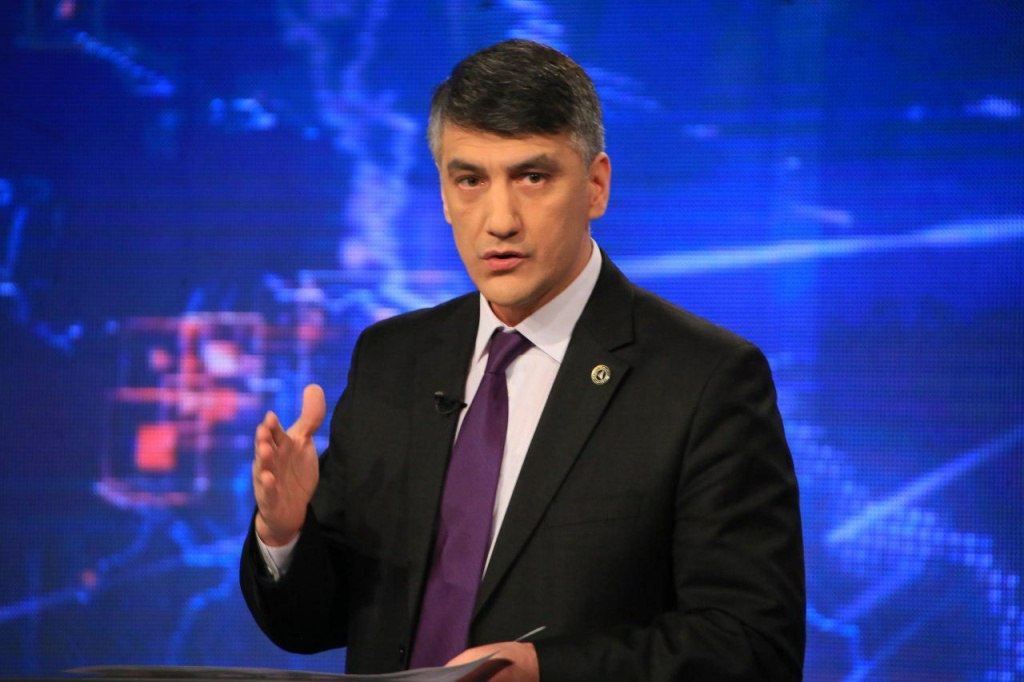Viewing results 307 - 312 of 398
A joint international center for medical education will be opened by universities of Kazakhstan, Tatarstan, Uzbekistan and Tajikistan. Preliminary agreements were reached on the margins of the International Forum, Russia - Islamic World: KazanForum. Specialists will work on the compatibility of educational programs, the possibility of obtaining double diplomas, and mutual recognition of medical education, Sputnik reports. "We have an opportunity to join forces in developing new educational programs... to develop the quality and accessibility of medical education," said Alexei Sozinov, Rector of the Kazan State Medical University of the Ministry of Health of Russia (KSMU), noting that this will also help reduce the shortage of doctors observed in each of the participating areas. Agreements were also reached on a joint postgraduate program were signed within the framework of the economic forum. "There is a need to work on joint educational programs, double degree programs, so that medical education is recognized in all countries that are part of the Eurasian Union," said the Vice-Rector for Strategic Development of the Medical University of Karaganda NAO, Victor Ricklefs. In addition, Director of the Center for Strategic Development and Quality of Education at the Abu Ali Ibn Sino Tajik State Medical University, Mahmudzoda Hayem Ruziboi stated that the new center, with further development, will create a model for the future doctor of Central Asia, which will meet the requirements of all states and communities.
Alisher Qodirov, leader of the Milliy Tiklanish Party and Vice-Speaker of the Legislative Chamber of the Oliy Majlis of Uzbekistan, has proposed a ban on the provision of public services to persons who don't speak the Uzbek language. He expressed this opinion in response to a statement by the chairman of the Russian State Duma, Vyacheslav Volodin. Qodirov said that the Uzbek language should be defined in legislation as a mandatory language. "In our laws, in addition to creating conditions for citizens of other nationalities to study their native language and values in kindergarten and at school, the Uzbek language should be defined as compulsory," he wrote in his Telegram channel. The politician stated that he believes it should be impossible for a person who doesn't know Uzbek to be employed in the civil service or use state services. Earlier, Qodirov suggested limiting the use of Russian on Uzbek television and in education. The party leader stated that a norm on teaching primary education in Uzbek should be introduced into legislation. "We have not been able to teach Russian compatriots the Uzbek language for 100 years. On the contrary, it has become customary that Uzbeks send their children to be educated in Russian. In Tashkent, the number of schools where education is not in Uzbek has grown. Unfortunately, more than 90% of pupils at such schools are Uzbeks," the Vice-Speaker wrote. Qodirov's statements run counter to Article 19 of the Uzbek Constitution, which states that "all citizens have the same rights and freedoms and are equal before the law regardless of sex, race, nationality, language, religion, beliefs, social origin, or social status."
On 15 May, Laziz Kudratov, Minister of Investment, Industry and Trade of Uzbekistan, James Quincey, Chairman and CEO of The Coca-Cola Company, and Tuncay Özilhan, Chairman of the Board of Anadolu Group attended the launch of a new Coca-Cola non-alcoholic beverage production plant in the Samarkand region. The company’s exclusive partner in Uzbekistan is Coca-Cola İçecek, part of the Turkish Anadolu Group. According to the Uzbek Ministry of Investment, Industry and Trade, the new plant built at a cost of $80 million, will produce 280 million liters of beverages per year and create 200 jobs. The company has now invested $500 million and created over 1,500 new jobs in three plants in Tashkent and Urgench, and in the Namangan region. The combined annual production exceeds 900 million liters of beverages. Plans were also announced for the construction of a new production line in the city of Namangan, costing $50 million and scheduled to open next year. The heads of The Coca-Cola Company and Anadolu Group commended Uzbekistan’s investment climate which nurtures confidence amongst foreign investors to implement long-term projects. Following the launch, James Quincey and Tuncay Özilhan attended a meeting with Uzbekistan’s president Shavkat Mirziyoyev during which agreements were reached on the further expansion of the Coca-Cola Company’s investment program in Uzbekistan. In response to the company's readiness to increase their presence in Uzbekistan, the president advised that the state was set to adopt a separate roadmap for the accelerated implementation of this and other promising projects.
According to Statista, based on UNESCO data, Uzbekistan ranked fifth globally in terms of the number of students studying abroad in 2021. Chinese and Indian students top the list. The number of Chinese students studying abroad was one million, and Indian students, 508,000. Vietnam, Germany and Uzbekistan are next on the list, with 137,000 students from Vietnam, 126,000 from Germany, 110,000 from Uzbekistan, 106,000 from France, 103,000 from the U.S., and 99,000 from Syria studying abroad. The U.S. has become the main country receiving foreign students, enrolling 833,000 in 2021, with Britain in second place with 601,000. The figures are part of the World Migration Report 2024. UNESCO has reported that international students numbered 2.2 million in 2001, and this had increased to 6.39 million by 2021.
Hungary will train nuclear engineers from Uzbekistan to work in Uzbek power plants, the country's trade minister Peter Szijjarto announced during his recent visit to Tashkent. "Since we have several decades of experience in the field of nuclear power, we have already started training future Uzbek nuclear power specialists in Hungary," Sijjarto wrote on social media. He noted that if a contract with Rosatom is signed for the construction of a nuclear power plant on the territory of Uzbekistan, it will use the Hungarian technology of cooling on the basis of a "dry" cooling tower. A similar method is already used by the Hungarian company Eniox, which is ready to provide financing to Hungary's Eximbank Hungary in the amount of 130 million euros when participating in the Uzbek nuclear project. Hungary has now started construction of the Russian-designed Paksh-2 NPP of generation "3+" with two power units based on VVER-1200 reactors. Operating since 1982, the Paksh NPP will start to be decommissioned from 2032. "In the current energy crisis, the ability to produce nuclear energy has become extremely valuable. Without nuclear energy, Europe would not have a secure energy supply and affordable energy," Sijjarto emphasized. As the world's fifth-largest exporter of uranium, Uzbekistan is attracting Japanese and Chinese companies that are actively developing uranium in the republic, especially with a focus on black shale. According to data for 2022, Uzbekistan has reserves of 49,200 tons of uranium and about 32,900 tons of uranium in black shale. The deposits are mainly concentrated in sandstones of the Kyzylkum desert. Today, uranium mined in the country is exported abroad by companies such as Itochu (Japan), Cameco (Canada), CNEIC (China) and others.
On May 11, Ministers of Transport of Kazakhstan and Uzbekistan, Marat Karabaev and Ilkhom Makhkamov signed a Road Map for strategic cooperation in transport and logistics for 2024-2025. During the meeting in Astana, the ministers discussed the development of international transport corridors, rail and road transportation, and joint projects relating to the construction of a transport infrastructure. High on the agenda, were the joint implementation of the construction of the Uzbekistan – Afghanistan – Pakistan railway and the collaborative development of the multimodal transport corridor Belarus – Russia – Kazakhstan – Uzbekistan – Afghanistan – Pakistan. With reference to accelerating transportation through the digitalization of cargo documentation, the parties lauded the introduction of the ‘E-permit’ system of electronic exchange of permit forms between the two countries. The Kazakh side welcomed Uzbekistan’s plans to build the Termez – Mazar-i-Sharif – Kabul - Peshawar railway and confirming his country’s readiness to participate in the project, Marat Karabaev stated, “The implementation of the project will contribute to the development of regional connectivity and trade for the countries of Central Asia, giving them access to the major sea ports of the South Asian region.” The parties also reported that work is now underway on a new railway line between Darbaza and Maktaaral, which will increase the throughput capacity between Kazakhstan and Uzbekistan by a further 10 million tons. The Kazakh minister noted that the volume of export-import transportation between the two countries by road increased by 6% over the past year and amounted to 1.8 million tons.






